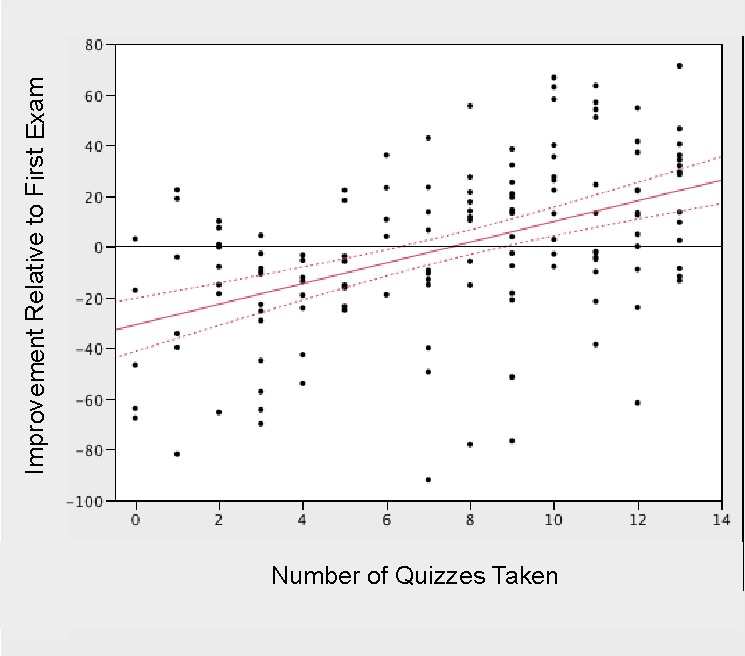
With this much work, the question in my mind was whether it made any difference to student outcomes. Did it just give the most-prepared students another way to earn credit, or did it actually help them move beyond memorization of factual material and into procedural thinking - on the path towards independence in learning? (I take these stages from cognitive developmental theory in Women's Ways of Knowing, Belenky, Clincy, Goldberger & Tarule 1986.)
To answer this question, I analyzed student performance as a function of two variables: initial knowledge (measured as performance on the first in-class summative exam) and number of weeks that the student took at least one quiz. I didn't consider score on the quiz or how often the quiz was taken. Performance was calculated as the sum scores of the other three in-class exams (as mentioned elsewhere, the exams and quizzes had questions with similar structure, distributed similarly in Bloom's taxonomy).
I am preparing these results for publication, and here only provide a graphical representation of my findings. I calculated the residuals of the regression of (sum scores exams 2, 3, and 4) against first exam score as a measure of student improvement. Graphing these resituals against number of quizzes taken (13 is the maximum) clearly shows that nearly all students benefited from taking weekly quizzes. (Other analyses show that better, or worse, performing students are not more or less likely to take the quizzes).
